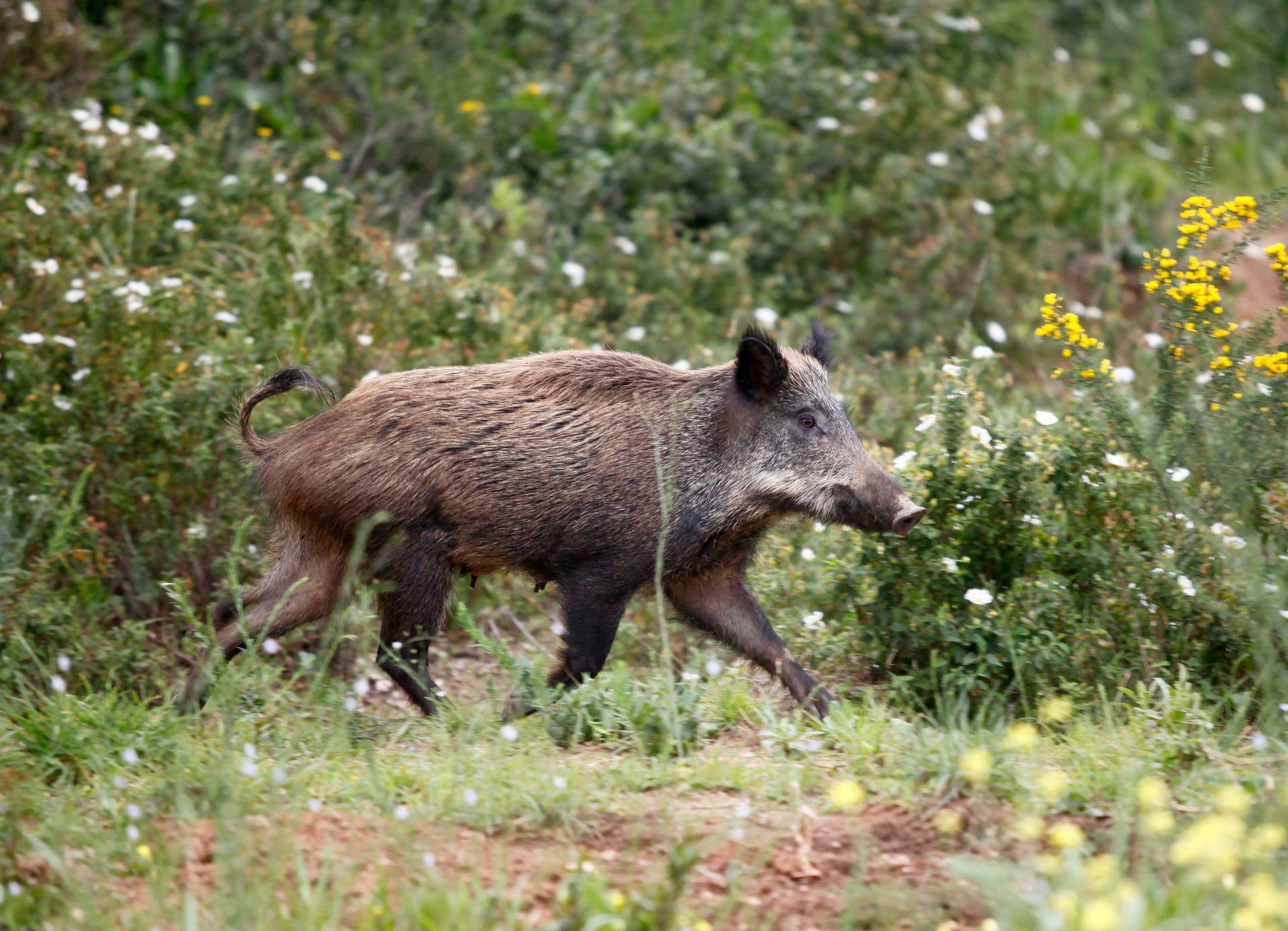A boar forages in Bainem Forest, Algiers.
Protected animals have been causing quite a stir in recent weeks. But in the case of wild boars in Italy, people aren’t protesting their elimination — they’re demanding it.
A 77-year old man was mauled by a wild boar on Saturday. Salvatore Rinaudo, of the seaside town of Cefalù, was walking his dogs with his wife when the boar appeared. He attempted to defend the dogs, but was thrown down and bitten several times, later succumbing to his injuries.
Rome-based reported Megan Williams has been following the story: “His wife got away with some minor injuries, but obviously traumatized, witnessing her husband being essentially bitten to death by this pack of wild boars, it was awful.”
Wild boars have become a significant problem in Italy. Attacks are infrequent, but they bring about many other issues. Williams hears about them often: “There’s a lot of complaints about the boars eating animals and eating crops.”
This weekend’s story may have sparked more outrage, but there has been a steady stream of frustration against the animals: “If you read the Italian regional papers, all of them have stories about wild boars eating their crops, eating their animals, and all of the farmers around the country are calling for the government to come up with some sort of policy to deal with these animals. “
The resentment against wild boars and other menacing wild animals is primarily due to their multiplication. “In the last 40 or 50 years the population has really sharply risen, for all sorts of reasons,” Williams says. “And the problem is, they eat crops, and they particularly like prized crops.” So Italian farmers aren’t exactly fond of the boars, despite their striking good looks.
Wild boar hunting is a common practice in Italy. “This is a really important animal in the collective culinary imagination of Italian,” says Megan Williams. “They eat wild boars, and they’re delicious.” Indeed, some of the first search results for Sicilian wild boar lead to paté recipes. The region is home to a number of fairs, banquets, and other celebrations geared around eating the animal.
Though wild boars are protected, and hunting restrictions do exist, that doesn’t stop many: “There are areas that do allow hunters to kill them. In certain areas they kill up to 200 a year, all throughout the country, but the population continues to grow,” Williams states.
But it isn’t so easy to catch them. The journalist has heard of their elusiveness first-hand: “They’re survivors. They’re bold, they’re smart, they have a fabulous memory. They’re elusive, they travel fast and far, they can even swim across huge rivers. They’re omnivores so they’ll eat anything…so it’s a huge challenge, in the areas that have given carte blanche for hunters to kill them, for experienced hunters to even find them!”
They’ve even made their way to the capital: Williams recalls several instances in which a wild boar roamed the streets of Rome, terrifying its citizens.
Farmers and other groups across the country are calling for the government to develop a policy dealing with Italy’s wild boar problem, but nothing has happened yet.
Our coverage reaches millions each week, but only a small fraction of listeners contribute to sustain our program. We still need 224 more people to donate $100 or $10/monthly to unlock our $67,000 match. Will you help us get there today?
